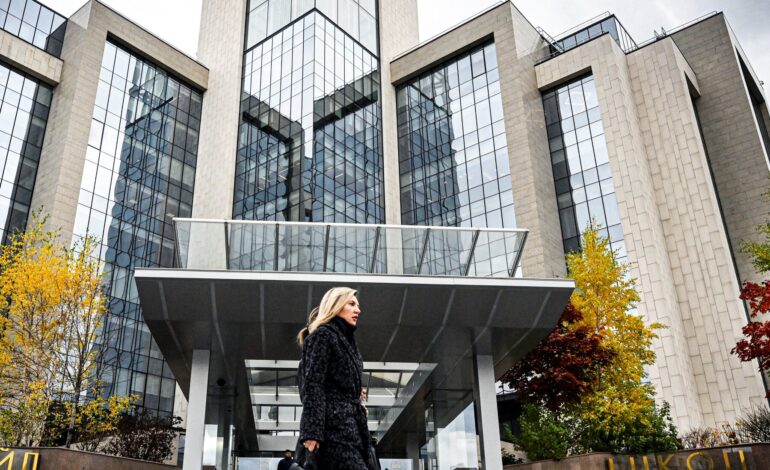U.S. and Europe Intensify Sanctions Against Russia Amid Ongoing Conflict

The United States and European nations have announced a new wave of sanctions aimed at pressuring Russia to change its aggressive stance in Ukraine. This marks the first significant move by President Donald Trump in his second term to address the ongoing conflict that has resulted in thousands of casualties and widespread destruction in the region. The sanctions, unveiled on March 15, 2024, target key sectors of the Russian economy, with the hope of compelling the Kremlin to reconsider its military operations in Ukraine.
In a coordinated effort, Western nations, including members of the European Union, have imposed restrictions on Russian energy exports, financial institutions, and military suppliers. This initiative aims to limit Russia’s access to critical markets and reduce its ability to fund military actions. The sanctions come after a series of diplomatic negotiations failed to yield any significant progress toward a peaceful resolution to the conflict.
The sanctions specifically target the Russian oil and gas sector, which is vital for the country’s economy. Analysts estimate that these sanctions could potentially cost Russia up to $50 billion annually, further straining its financial resources. In addition to energy restrictions, the sanctions also include asset freezes and travel bans for individuals linked to the Russian government.
International Response and Implications
The reaction from Moscow has been swift. Russian officials have condemned the sanctions as a violation of international law and have vowed to retaliate against any punitive measures. This ongoing back-and-forth raises questions about the effectiveness of sanctions as a tool for influencing foreign policy. Critics argue that sanctions often hurt the civilian population more than the government they aim to pressure.
The sanctions coincide with a broader strategy by NATO to bolster military support for Ukraine. In recent weeks, NATO has increased troop deployments in Eastern Europe, reinforcing its commitment to defend member states against potential Russian aggression. The alliance has also provided Ukraine with additional military aid, including advanced weaponry and training for Ukrainian forces.
Despite these efforts, some experts caution that sanctions alone may not be sufficient to alter Russia’s course. Historical precedents suggest that regimes under sanctions often double down on their policies rather than change course. The success of this latest round of sanctions will depend on the unity and resolve of Western nations in maintaining pressure on Russia.
As the situation evolves, global markets remain sensitive to developments. The energy sector, in particular, is closely monitoring the impact of sanctions on oil prices and supply chains. Any disruption in Russian energy exports could lead to increased prices, affecting economies worldwide.
The international community continues to watch closely as the United States and Europe implement these measures. While the hope is that the sanctions will lead to a change in Russia’s actions in Ukraine, the complexities of international relations and historical patterns of state behavior leave many uncertain about the outcome.






